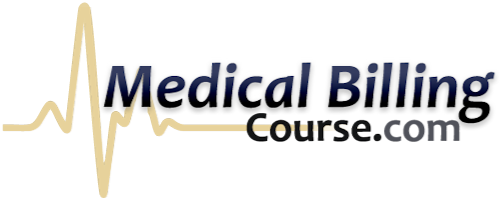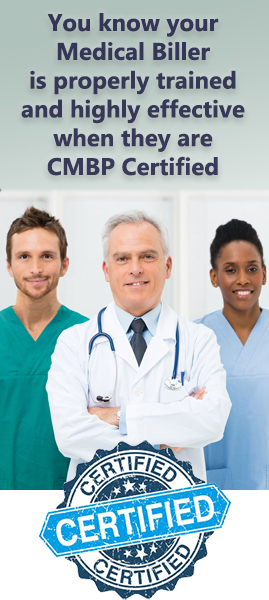- 09/01/2025
- Posted by: Medical Billing Course
- Categories: Medical Billing Career, Medical Billing Certification, Medical Billing Employment, Medical Billing Jobs

Unlock High-Paying Medical Billing Career Opportunities: Your Complete Guide to Certification, Jobs, and Business Success
Are you ready to dive into a career that not only promises financial rewards but also offers flexibility and growth? Medical billing is your gateway to a six-figure income, whether you’re a seasoned healthcare professional or considering a career change. By mastering coding standards and revenue cycle processes through targeted certification, you can unlock top-paying roles or even start a successful home-based business. This guide will walk you through the essentials of medical billing, salary expectations for 2025, certification paths, steps to launch a home business, remote job strategies, key software skills, and answers to your burning questions. Whether you’re looking to boost your administrative skills, enjoy remote work flexibility, or build your own service, this roadmap is your key to transforming training into lucrative Medical Billing Career Opportunities.
“The medical billing field is experiencing significant growth, driven by the increasing complexity of healthcare regulations and the need for efficient revenue cycle management. For those looking for a stable, well-compensated career with the flexibility to work remotely or start their own business, medical billing is an excellent choice.” – Tri Smith, Instructor, MedicalBillingCourse.com.
Tri Smith is a seasoned instructor at MedicalBillingCourse.com with over five years of experience guiding students toward successful careers in medical billing. His passion for education and deep understanding of the industry have empowered thousands of students to complete their certification and achieve their professional goals, whether in traditional employment or entrepreneurial ventures.
What Is Medical Billing and Why Is It a High-Paying Career Choice?
Medical billing is the process of converting clinical procedures into standardized claims that ensure insurance reimbursement. This crucial function allows healthcare providers to accurately capture revenue and avoid costly denials. By understanding CPT, ICD-10, and HIPAA regulations, billers bridge the gap between patient care and payer systems, ensuring a steady cash flow and compliance. For instance, precise coding of an outpatient visit can speed up insurer payments and reduce audit risks, directly impacting a facility’s bottom line and enhancing a biller’s market value. Pursuing a career in medical billing opens up significant Medical Billing Career Opportunities.
What Does a Medical Biller Do? Key Responsibilities and Daily Tasks
A medical biller is responsible for organizing invoicing by translating healthcare services into standardized billing codes, preparing claims, and tracking payments through each payer’s portal. Common daily tasks include:
- Reviewing clinical documentation to extract billing codes and modifiers
- Submitting electronic claims to Medicare, Medicaid, and private insurers
- Reconciling remittance advice and posting payments in practice management systems
- Investigating claim denials, appealing inaccurate rejections, and resubmitting corrected claims
- Communicating with insurance representatives to resolve discrepancies
These activities require a keen eye for detail, proactive follow-up, and a solid understanding of insurer policies, setting the stage for a rewarding career that directly influences organizational revenue stability and presents excellent Medical Billing Career Opportunities.
How Do Medical Billing Career Opportunities Fit into Healthcare Revenue Cycle Management?
Medical billing is a central phase in the revenue cycle, capturing service details after patient registration and coding, then forwarding them to payers for adjudication. Key steps include:
- Charge Capture → Extract procedure and diagnosis codes from medical records
- Claim Preparation → Compile patient, provider, and service data into standardized forms
- Claim Submission → Transmit electronic or paper claims to insurers
- Payment Posting → Record adjudicated amounts and patient responsibilities
- Denial Management → Analyze and correct claim errors to minimize write-offs
By optimizing each attribute—accuracy, timeliness, compliance—billers can accelerate payments and reduce administrative overhead, thereby elevating their earning potential within revenue cycle teams and expanding Medical Billing Career Opportunities.
What Are the Benefits of Pursuing a Medical Billing Career?
Entering medical billing offers three primary advantages:
- High Demand and Growth → Healthcare reliance on efficient billing sustains steady job openings
- Flexible Work Arrangements → Remote and part-time roles support work-life balance
- Competitive Compensation → Specialized skills in coding and compliance command premium salaries
These benefits create a compelling career path for individuals seeking stability, autonomy, and upward mobility in healthcare administration, highlighting the diverse Medical Billing Career Opportunities available.
How Much Can You Earn? Medical Billing Salary and Job Outlook in 2025
Certified medical billers command salaries based on experience, location, and work setting; understanding these benchmarks helps you target the most lucrative roles. Below is an overview of average wages across regions and expertise levels.
What Is the Average Medical Billing Salary by Experience and Location?
The table below outlines typical salary ranges for medical billing specialists in the United States.
Medical Biller Salary Data
Certified medical billers’ salaries vary based on experience, location, and work setting. Entry-level positions typically start around $38,000 to $45,000 annually, while senior-level positions can exceed $70,000 in urban centers. Remote positions may offer salary premiums, enhancing your overall Medical Billing Career Opportunities.
– Salary.com
This citation provides external validation for the salary ranges presented in the article, supporting the claims about earning potential.
How Do Remote Medical Billing Jobs Affect Salary and Flexibility?
Remote positions typically offer 5–15% salary premiums and flexible schedules by eliminating commute costs and providing diverse client portfolios. Benefits include:
- Reduced Overhead → Work from home without office commute
- Expanded Employer Pool → Serve hospitals and practices nationwide
- Enhanced Autonomy → Control workloads and select preferred service niches
Adopting best practices for virtual collaboration and data security garners higher pay and client trust, reinforcing your revenue cycle value proposition and opening up new Medical Billing Career Opportunities.
What Are the Job Growth Projections for Medical Billers?
The U.S. Bureau of Labor Statistics projects 7% growth for medical billing and health information roles, including billers, from 2022 to 2032—faster than average. This expansion stems from:
- Telehealth adoption is increasing billing complexity
- Value-based care models demand precise documentation
- An aging population is driving healthcare utilization
These trends confirm sustained demand for certified billers and open paths to supervisory and consultancy roles, further solidifying the outlook for Medical Billing Career Opportunities.
Medical Billing Job Outlook
The U.S. Bureau of Labor Statistics projects a 7% growth for medical records and health information roles, including medical billers, from 2022 to 2032. This growth rate is considered faster than average, indicating a sustained demand for skilled professionals in this field.
– U.S. Bureau of Labor Statistics
This citation supports the article’s claim about the positive job outlook for medical billers.
Which Medical Billing Jobs Offer the Highest Pay?
Focusing on denial resolution and analytics can elevate your salary into six-figure territory, presenting some of the most lucrative Medical Billing Career Opportunities.
High-Paying Medical Billing Careers: Certification, Jobs & Success
Certification validates your proficiency in coding guidelines, payer rules, and compliance, unlocking higher-paying positions and business credibility.
What Are the Best Medical Billing Certifications Available?

How Long Does It Take to Get Medical Billing Certified?
Completion timelines vary:
- Comprehensive Online Program → 8–12 weeks of part-time study
- Accelerated Bootcamp → 4–6 weeks full-time immersion
- Self-Paced Review → 3–6 months based on personal schedule
Factors such as prior healthcare experience and study intensity determine your certification speed and readiness for exam success.
What Does a Comprehensive Medical Billing Course Include?
An effective curriculum covers:
- Medical Terminology and Anatomy Foundations
- CPT, ICD-10, and HCPCS Coding Systems
- Insurance Claims Processing and Adjudication
- HIPAA Privacy and Security Regulations
- Practice Management Software Navigation and Reporting
These modules equip you to handle complex billing scenarios and maintain regulatory compliance.
How Does MedicalBillingCourse.com’s Program Prepare You for Success?
MedicalBillingCourse.com’s online certification integrates hands-on exercises, live webinars, and one-on-one mentoring to simulate real-world billing tasks. The curriculum spans:
- Module 1: Coding Principles and Clinical Documentation (link to program part 1)
- Module 2: Claim Submission, Reconciliation, and Denial Management (link to program part 2)
- Module 3: HIPAA Privacy, Security, and Compliance Frameworks (link to HIPAA page)
Graduates emerge with a digital portfolio of coded claims, denials strategies, and compliance checklists, ensuring they excel in both employee and entrepreneurial roles.
How Can You Start a Successful Home-Based Medical Billing Business?

Launching from home lets you leverage training into a scalable service, balancing client diversity with flexible scheduling.
What Are the Essential Steps to Launch a Medical Billing Business from Home?
Begin with these sequential actions:
- Obtain Certification and Develop a Business Skill Set
- Select and Configure Practice Management Software
- Register Your Business Entity and Secure an EIN
- Establish HIPAA-Compliant Data Security and Workflow
- Market Services to Local Practices and Telehealth Providers
These steps transform your billing expertise into a professional service offering.
How Do You Create a Medical Billing Business Plan?
A robust plan addresses:
- Market Analysis → Identify underserved specialties and telehealth opportunities
- Services Portfolio → Define claim processing, denial appeal, and reporting packages
- Financial Projections → Estimate revenue per client based on claim volumes
- Marketing Strategy → Outline digital outreach, networking, and referrals
- Risk Management → Incorporate HIPAA safeguards and liability insurance
By mapping these components, you set clear revenue targets and operational milestones.
What Legal and HIPAA Compliance Requirements Must You Follow?
Operating a billing service requires adherence to:
- HIPAA Privacy Rule → Limit data access and implement secure messaging
- HIPAA Security Rule → Enforce encryption, backups, and audit controls
- Business Associate Agreements → Formalize data handling with providers
- State Licensure and Tax Regulations → Register for professional and sales tax where applicable
Meeting these legal standards builds client trust and minimizes penalty risks.
How Do You Acquire and Retain Clients for Your Medical Billing Service?
Effective marketing tactics include:
- Networking with Local Medical Societies and Telehealth Platforms
- Offering Free Audits or Pilot Projects to Demonstrate ROI
- Publishing Case Studies Highlighting Faster Reimbursement Cycles
- Leveraging Referrals and Client Testimonials to Build Authority
Cultivating professional relationships and showcasing efficiency gains fosters long-term client loyalty.
Where and How Can You Find Remote Medical Billing Jobs?
Remote roles broaden your employer base, enabling you to work with multiple practices across jurisdictions.
What Companies Hire Remote Medical Billers with No Experience?
Entry-level opportunities often appear at:
- Virtual Staffing Agencies specializing in healthcare administration
- Telehealth Platforms offering back-end revenue support
- Small Practices outsourcing billing tasks to freelance billers
Applying through reputable staffing portals can secure remote positions that include mentorship and on-the-job training.
How Do You Set Up an Effective Home Office for Remote Medical Billing?

Design a workspace that maximizes productivity:
- Dedicated Room with Ergonomic Desk and Chair
- High-Speed Internet Connection and Dual Monitors
- Secure VPN and Encrypted File Storage
- Organized Documentation Workflow using Cloud-Based Practice Management Software
A professional environment supported by reliable technology streamlines billing operations and safeguards patient data.
What Skills and Certifications Are Needed for Remote Medical Billing Positions?
Employers seek practitioners who possess:
- Accredited Billing Certification (e.g., CMB, PMB)
- Proficiency with Leading Practice Management Systems (e.g., Kareo, AdvancedMD)
- Strong Communication Skills for Insurer and Provider Coordination
- Knowledge of Remote Collaboration Tools (e.g., Zoom, Slack)
Combining technical and interpersonal competencies positions you for competitive remote roles.
What Skills and Tools Are Essential for a High-Paying Medical Billing Career?
Mastering both soft and technical skills ensures you deliver impeccable billing services and justify premium rates.
Which Medical Billing Skills Are Most In-Demand?
Employers consistently prioritize:
- Attention to Detail for Accurate Coding and Claim Submission
- Analytical Skills to Interpret Denial Trends and Financial Reports
- Regulatory Awareness to Navigate HIPAA, CPT, and ICD-10 Updates
- Communication Abilities for Negotiating with Payers and Providers
Cultivating these competencies accelerates your advancement into specialist and leadership roles.
How Important Is Knowledge of Medical Terminology, CPT, ICD-10, and HIPAA?
Proficiency in these areas forms the backbone of effective billing:
- Medical Terminology clarifies clinical documentation and service descriptions
- CPT and ICD-10 coding frameworks standardize claims across insurers
- HIPAA guidelines protect patient privacy and enforce compliance
Together, they reduce claim rejections and position you as a trusted revenue cycle partner.
What Medical Billing Software Should You Master?
Familiarity with industry-leading platforms enhances efficiency and marketability:
- Kareo Billing → Cloud-Based Claims and Reporting
- AdvancedMD → Integrated Scheduling, Billing, and EHR
- AthenaCollector → Robust Denial Management Tools
- NextGen → Analytics-Driven Revenue Cycle Optimization
Demonstrated software expertise signals operational readiness and supports higher compensation.
What Are the Most Frequently Asked Questions About Medical Billing Careers?
While there is no simple Q&A format here, aspiring and seasoned billers often seek clarity on earning potential, career longevity, home-based viability, role distinctions, and certification timelines. Below, each common inquiry is addressed in a concise explanation.
How Much Can a Certified Medical Biller Earn Annually and Hourly?
Certified practitioners typically earn a median annual wage of around 47,180 USD, with entry-level positions starting near 38,000 USD and senior roles exceeding 70,000 USD. Hourly rates range from $18 to over $45 based on experience, specialization in denial management or revenue analytics, and remote consulting arrangements that allow multiple client engagements.
Is Medical Billing a Good Career Choice for the Future?
Yes, projected growth of 7% through 2032 reflects healthcare’s sustained reliance on efficient revenue cycle operations. As telehealth expands and coding guidelines evolve, skilled billers who adapt to automation and analytics will remain indispensable in maintaining provider cash flow and compliance.
Can You Start Medical Billing from Home Without Experience?
With a recognized certification and targeted software training, entry-level professionals can secure remote billing roles or attract local practices for outsourced services. Mentored onboarding and completing practical exercises in practice management systems accelerate readiness, making home-based operations viable for newcomers. You can explore more about medical billing certification.
What Is the Difference Between Medical Billing and Medical Coding?
Medical coding focuses on assigning CPT, ICD-10, and HCPCS codes to clinical services, while medical billing compiles those codes into claims, submits them to insurers, reconciles payments, and manages denials. Coders feed accurate data into the revenue cycle, and billers ensure the financial realization of those coded services.
How Long Does Certification Take and What Are the Requirements?
Most intensive programs run 8–12 weeks with part-time study, covering terminology, coding systems, claims processing, and HIPAA compliance, followed by an industry-standard exam. Accelerated bootcamps complete certification in 4–6 weeks, while self-paced learners may take up to six months, depending on prior experience and study hours.
Embarking on a structured medical billing course program and skill-building journey equips you to tap into high-paying medical billing career opportunities and adapt seamlessly to evolving healthcare revenue cycle demands.
In mastering the interplay of coding accuracy, compliance, and reimbursement workflows, you position yourself as a revenue cycle specialist whose expertise commands premium compensation and entrepreneurial success.
“I was looking for a career change that offered flexibility and good income. MedicalBillingCourse.com provided the comprehensive training and support I needed to launch my own successful home-based billing business. The instructors were knowledgeable, and the curriculum was practical and up-to-date.” – Sarah K., Certified Medical Biller

